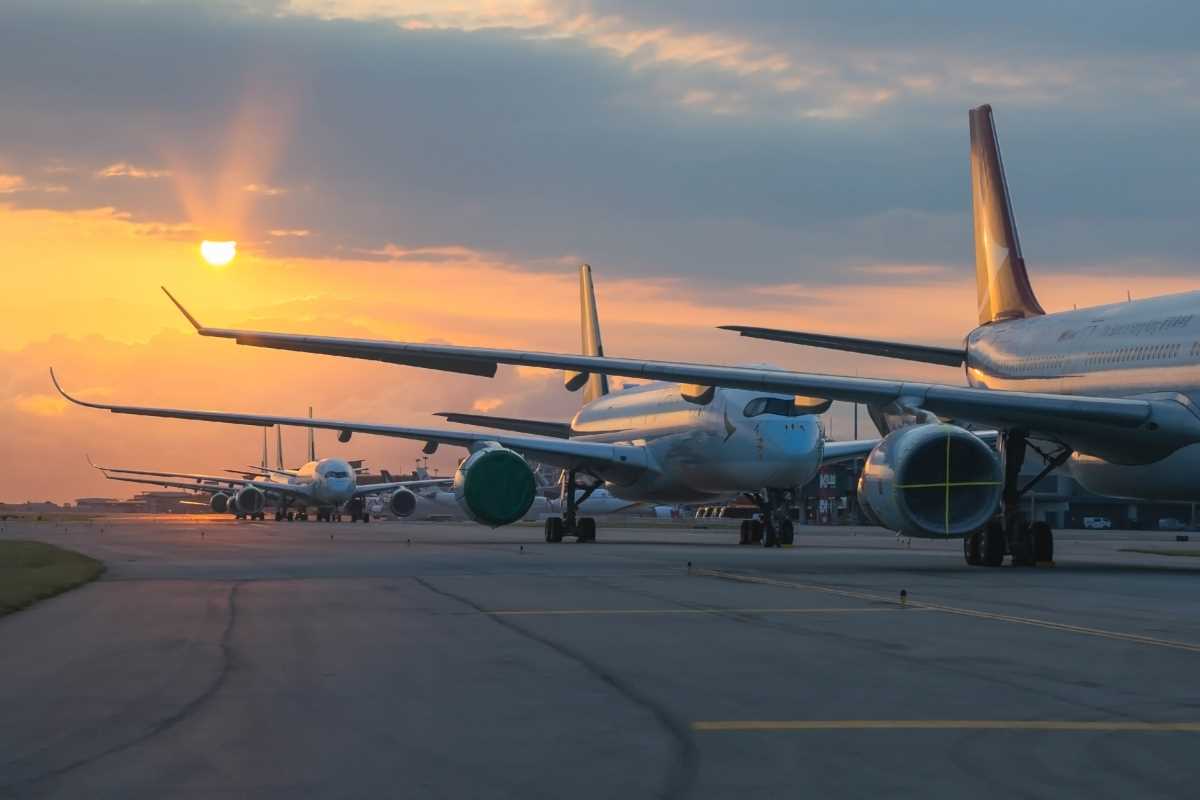Flight cancellations can throw even the best-laid travel plans into chaos. Whether you’re traveling for work, vacation, or to see family, dealing with a canceled flight can feel overwhelming and stressful. However, knowing how to respond effectively can save time and frustration while ensuring a smoother resolution.
This step-by-step guide will walk you through what to do if your flight gets canceled, including tips on rebooking, understanding your rights as a passenger, and making the most of unexpected downtime.
Step 1: Stay Calm and Act Quickly
The first rule of handling a flight cancellation is to stay calm. It’s easy to panic when your plans fall apart, but staying level-headed will help you think clearly and act decisively. Flight cancellations often lead to long lines and reduced availability for rebooking, so timeliness is crucial.
Immediate Actions to Take:
- Check Your Flight Status: Before heading to the airport, confirm the cancellation through your airline’s app, website, or text notifications. This prevents unnecessary trips to the airport.
- Head to the Customer Service Desk (or Call): Limited spots are available on rebooked flights, so getting in touch with the airline as soon as possible puts you ahead of other travelers.
Pro Tip:
While standing in line for help at the airport, use your smartphone to contact customer service simultaneously. Many airlines offer assistance through their apps, so being proactive can get you rebooked faster.
Step 2: Know Your Rights as a Passenger
Airlines have policies in place regarding flight cancellations, and travelers often have rights they aren’t fully aware of. Familiarizing yourself with these rights ensures you get the best possible resolution.
Compensation Policies in Key Regions
United States
- U.S. airlines are not legally required to compensate passengers for flight cancellations due to reasons beyond their control, such as weather.
- If the airline cancels your flight for any reason, you are entitled to a refund for the unused portion of your ticket—even for non-refundable fares—or an alternative itinerary.
European Union (EU)
Under EU Regulation 261/2004, you have extensive rights for flights departing the EU or operated by EU-based airlines:
- If your cancellation is within the airline’s control (e.g., mechanical issues), you may be entitled to financial compensation of up to €600.
- You’re entitled to meals, refreshments, or accommodations, depending on the delay caused by rebooking.
Canada
Canada’s Air Passenger Protection Regulations (APPR) offer similar rights to those in the EU. If your flight was canceled due to the airline’s actions, compensation, rebooking, and meal or accommodation costs may be covered.
Ask Your Airline:
- Will the airline rebook at no additional cost?
- Do you qualify for hotel accommodation if the delay extends overnight?
- What are the next available routes to your destination?
Pro Tip:
Keep copies of all communications with the airline, receipts for additional expenses, and proof of delay (e.g., email notifications). These records may help you claim compensation later.
Step 3: Rebooking Options
Once it’s clear your original flight won’t take off, the next step is to secure alternate travel arrangements. Whether you’re flying within the same airline network or switching carriers, flexibility and persistence are key.
Explore Alternative Flights
- Through Your Airline: Airlines often automatically rebook passengers on the next available flight. If the proposed option doesn’t work for you, ask about earlier or alternative flights.
- Via Partner Airlines: Major carriers usually have agreements with partner airlines. If your airline is fully booked, inquire about seats on partner-operated flights.
Opt for a Different Destination Airport
If your destination has multiple nearby airports, ask whether rerouting to a different one is possible. For instance, if you’re flying to Los Angeles, landing in nearby Burbank or Long Beach might help you arrive sooner while still meeting your transportation needs.
Consider Refunds or Travel Vouchers
You’re entitled to a refund if the airline cannot offer a workable alternative. While travel vouchers may also be offered, weigh your options carefully—refunds give you the flexibility to rebook on the carrier of your choice.
Pro Tip:
Stay firm but polite. Airline representatives may initially offer limited options, but persistence and kindness often lead to better outcomes.
Step 4: Make the Most of Downtime
Unexpected delays due to flight cancellations don’t have to feel like wasted time. While waiting for your next flight, use the opportunity to make the experience more enjoyable or productive.
Useful Tips for Managing Delays:
- Explore the Airport: Larger airports often have amenities such as lounges, spas, and unique dining options. Checking out these perks can make layovers feel less tedious.
- Get Some Rest: If you’re facing a long delay, consider checking into a nearby airport hotel. Resting for a few hours helps fight fatigue and travel stress.
- Stay Productive: Catch up on work emails, read a book, or listen to a podcast. Free Wi-Fi and comfortable seating areas in most airports make it easier.
- Treat Yourself: Use this time for self-care. Indulge in a treat at a coffee shop, buy something nice for yourself, or take a relaxing walk around the terminal.
Pro Tip:
Check with your credit card company about lounge access. Many premium travel cards come with complimentary airport lounge perks, which could make your unexpected delay much more comfortable.
Step 5: Protect Yourself for Future Trips
Cancellations are unpredictable, but there are steps you can take for future trips to minimize inconvenience and protect yourself from excessive costs or stress.
Invest in Travel Insurance
A comprehensive travel insurance plan can cover expenses related to canceled or delayed flights, such as hotel bookings or alternate travel arrangements. Some plans also reimburse you for meals and other incidentals during delays.
Book Early Morning Flights
Morning flights are statistically less likely to get canceled. Weather conditions and cascading delays are more common later in the day, making early flights a safer bet for on-time departures.
Download the Airline’s App
Most airlines send real-time notifications about your flight status and allow you to rebook directly within their mobile app, saving time in the event of a cancellation.
Keep Essential Items in Your Carry-On
Always pack key essentials in your carry-on luggage in case of unexpected delays:
- Travel documents and ID
- Medications
- Phone charger and small snacks
- Toiletries (travel-sized)
Having these items on hand ensures you’re comfortable even if your checked luggage goes ahead without you.
Pro Tip:
If you travel frequently, consider loyalty programs. Membership can result in priority support and rebooking, helping you manage disruptions more easily.
Dealing with a canceled flight isn’t ideal, but it doesn’t have to derail your plans entirely. Quick action, knowledge of your rights, and a bit of preparation can go a long way toward reducing stress and ensuring a smoother resolution.
 (Image via
(Image via





